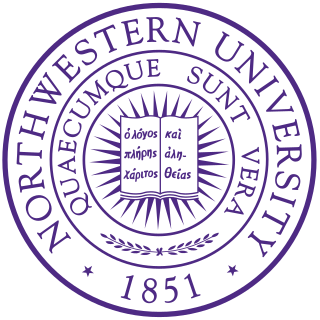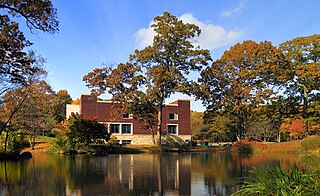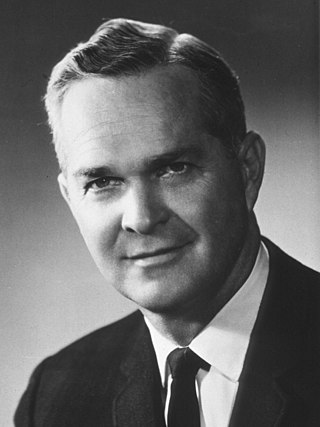Related Research Articles

A physician, medical practitioner, medical doctor, or simply doctor is a health professional who practices medicine, which is concerned with promoting, maintaining or restoring health through the study, diagnosis, prognosis and treatment of disease, injury, and other physical and mental impairments. Physicians may focus their practice on certain disease categories, types of patients, and methods of treatment—known as specialities—or they may assume responsibility for the provision of continuing and comprehensive medical care to individuals, families, and communities—known as general practice. Medical practice properly requires both a detailed knowledge of the academic disciplines, such as anatomy and physiology, underlying diseases, and their treatment, which is the science of medicine, and a decent competence in its applied practice, which is the art or craft of the profession.
Osteopathic medicine is a branch of the medical profession in the United States that promotes the practice of science-based medicine, often referred to in this context as allopathic medicine, with a set of philosophy and principles set by its earlier form, osteopathy. Osteopathic physicians (DOs) are graduates of American osteopathic medical colleges and are licensed to practice the full scope of medicine and surgery in all 50 U.S. states. The field is distinct from osteopathic practices offered in nations outside of the U.S.—in which practitioners are generally considered neither parts of core medical staff nor of medicine itself; rather, they are considered alternative medicine practitioners. The other major branch of medicine in the United States is referred to by practitioners of osteopathic medicine as allopathic medicine.

Louis Wade Sullivan is an active health policy leader, minority health advocate, author, physician, and educator. He served as the Secretary of the United States Department of Health and Human Services during President George H. W. Bush's Administration and was Founding Dean of the Morehouse School of Medicine.

The Tulane University School of Medicine is the medical school of Tulane University and is located in the Medical District of the New Orleans Central Business District in New Orleans, Louisiana, United States.

New York Medical College is a private medical school in Valhalla, New York. Founded in 1860, it is a member of the Touro University System.
UConn Health is a healthcare system and hospital, and branch of the University of Connecticut that oversees clinical care, advanced biomedical research, and academic education in medicine. The system is funded directly by the State of Connecticut and the University’s financial endowment. Its primary location, UConn John Dempsey Hospital, is a teaching hospital located in Farmington, Connecticut, in the US. In total, UConn Health comprises the hospital, the UConn School of Medicine, School of Dental Medicine, and Graduate School. Additional community satellite locations are located in Avon, Canton, East Hartford, Putnam, Simsbury, Southington, Storrs, Torrington, West Hartford, and Willimantic, including two urgent cares in both Storrs and Canton. UConn Health also owns and operates many smaller clinics around the state that contain UConn Medical Group, UConn Health Partners, University Dentists and research facilities. Andrew Agwunobi stepped down as the CEO of UConn Health in February 2022 after serving since 2014 for a private-sector job. Bruce Liang was UConn Heath's interim CEO for 2022-2024 and remains dean of the UConn School of Medicine. Andrew Agwunobi returned to UConn Health as Executive Vice President of Health Affairs and CEO beginning May 31, 2024.

Morehouse School of Medicine (MSM) is an independent and private historically-Black medical school in Atlanta, Georgia. Originally a part of Morehouse College, the school became independent in 1981.

SUNY Downstate Health Sciences University is a public medical school and hospital in Brooklyn, New York. It is the southernmost member of the State University of New York (SUNY) system and the only academic medical center for health education, research, and patient care serving Brooklyn's 2.5 million residents. It is the only state-run hospital in New York City. As of Fall 2018, it had a total student body of 1,846 and approximately 8,000 faculty and staff.

The Feinberg School of Medicine is the medical school of Northwestern University and is located in the Streeterville neighborhood of Chicago, Illinois. Founded in 1859, Feinberg offers a full-time Doctor of Medicine degree program, multiple dual degree programs, graduate medical education, and continuing medical education.

The State University of New York Upstate Medical University is a public medical school in Syracuse, New York. Founded in 1834, Upstate is the 15th oldest medical school in the United States and is the only medical school in Central New York. The university is part of the State University of New York (SUNY) system.
Edward ("Ted") Hance Shortliffe is a Canadian-born American biomedical informatician, physician, and computer scientist. Shortliffe is a pioneer in the use of artificial intelligence in medicine. He was the principal developer of the clinical expert system MYCIN, one of the first rule-based artificial intelligence expert systems, which obtained clinical data interactively from a physician user and was used to diagnose and recommend treatment for severe infections. While never used in practice, its performance was shown to be comparable to and sometimes more accurate than that of Stanford infectious disease faculty. This spurred the development of a wide range of activity in the development of rule-based expert systems, knowledge representation, belief nets and other areas, and its design greatly influenced the subsequent development of computing in medicine.

The Lewis Katz School of Medicine at Temple University (LKSOM), located on the Health Science Campus of Temple University in Philadelphia, Pennsylvania. It is one of seven schools of medicine in Pennsylvania that confers the Doctor of Medicine degree. It also confers Ph.D and M.S. degrees in biomedical science, and offers a Narrative Medicine program.
John Edward Hill is an American family physician in Tupelo, Mississippi.

The New York Institute of Technology College of Osteopathic Medicine (NYIT-COM) is a private medical school located primarily in Old Westbury, New York. It also has a degree-granting campus in Jonesboro, Arkansas. Founded in 1977, NYIT-COM is an academic division of the New York Institute of Technology. Formerly the New York College of Osteopathic Medicine, it is one of the largest medical schools in the United States. As of 2023, the NYIT College of Osteopathic Medicine has a 100 percent match rate, with all members of the Class of 2023 placed into residencies.

Robert Quarles Marston was an American physician, research scientist, governmental appointee and university administrator. Marston was a native of Virginia, and, after earning his bachelor's, medical and research degrees, he became a research scientist and medical professor. He served as the dean of the University of Mississippi School of Medicine, the director of the National Institutes of Health, and the president of the University of Florida.
Doctor of Osteopathic Medicine is a medical degree conferred by the 38 osteopathic medical schools in the United States. DO and Doctor of Medicine (MD) degrees are equivalent: a DO graduate may become licensed as a physician or surgeon and thus have full medical and surgical practicing rights in all 50 US states. As of 2023, there were 186,871 osteopathic physicians and medical students in DO programs across the United States. Osteopathic medicine emerged historically from the quasi-medical practice of osteopathy, but has become a distinct and proper medical profession.

Timeline of events related to sexual orientation and medicine

Reuben Dimond Mussey, Sr. was an American physician, surgeon, vegetarian and an early opponent of tobacco. He was the fourth president of the American Medical Association.

The George Washington University School of Medicine and Health Sciences is the professional medical school of the George Washington University, in Washington, D.C. SMHS is one of the most selective medical schools in the United States based on the number of applicants.
Lisa A. Cooper is an American internal medicine and public health physician who is the Bloomberg Distinguished Professor of Equity in Health and Healthcare at Johns Hopkins University, jointly appointed in the Johns Hopkins School of Medicine, Johns Hopkins School of Nursing and in the departments of Health, Behavior and Society, Health Policy and Management; Epidemiology; and International Health in the Johns Hopkins Bloomberg School of Public Health. She is the James F. Fries Professor of Medicine in the Division of General Internal Medicine, Director of the Johns Hopkins Center for Health Equity, and Director of the Johns Hopkins Urban Health Institute. Cooper is also a Gilman Scholar and a core faculty member in the Welch Center for Prevention, Epidemiology, and Clinical Research. She is internationally recognized for her research on the impact of race, ethnicity and gender on the patient-physician relationship and subsequent health disparities. She is a member of the President’s Council of Advisors on Science and Technology (PCAST). In 2007, she received a MacArthur Fellowship.
References
- ↑ Jeffrey M. Ring; Suzanne Mitchell (2008). Curriculum for Culturally Responsive Health Care: The Step-by-step Guide for Cultural Competence Training. Radcliffe Publishing. p. 207. ISBN 978-1-84619-294-4 . Retrieved 19 December 2010.